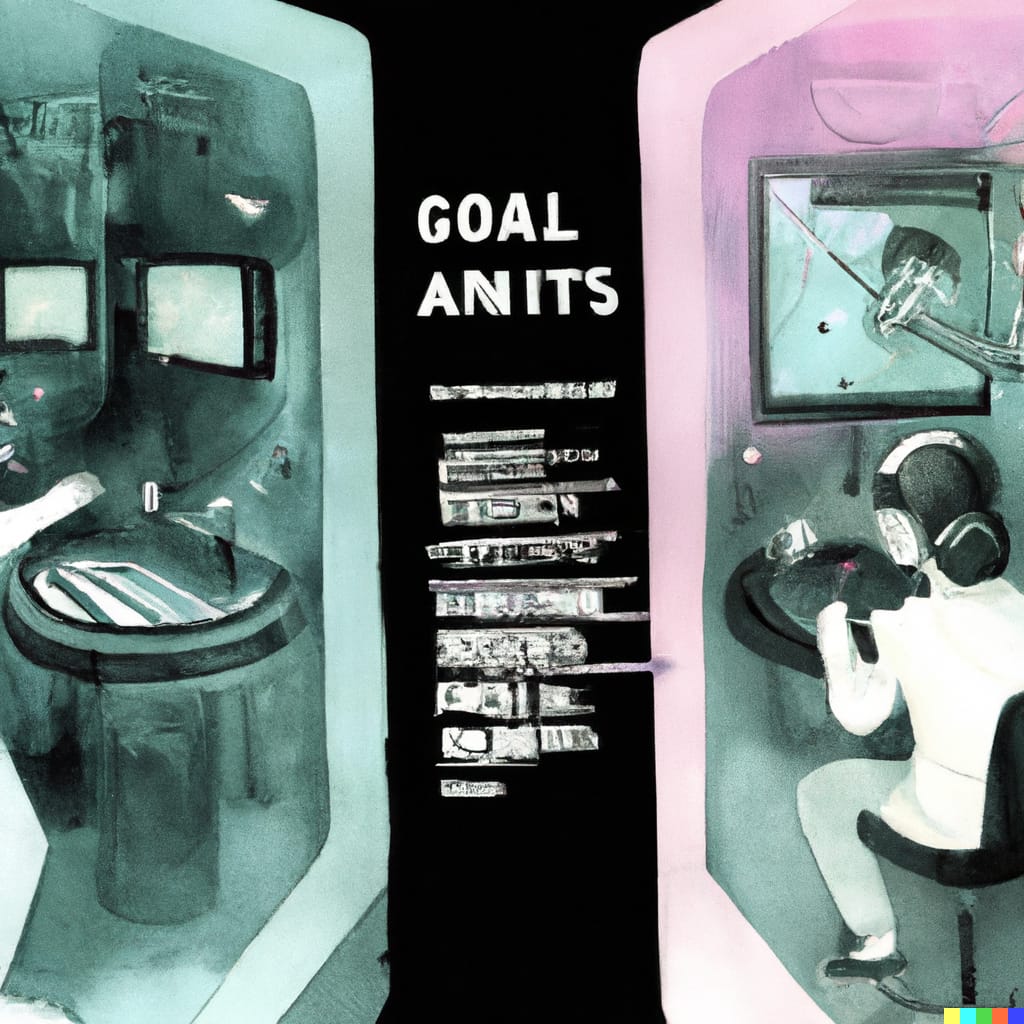Introduction: The Dawn of a New Era in Gaming
Video games have always been a playground for technological innovation. From the rudimentary graphics of arcade classics to the intricate virtual worlds of MMORPGs, each advancement has brought us closer to a more immersive experience. Now, as we stand on the brink of a new era, Artificial Intelligence (AI) is set to revolutionize the gaming landscape in ways we’ve never seen before. No longer just a buzzword, AI is becoming an integral part of the gaming ecosystem, promising to redefine player experiences from the ground up. In this comprehensive blog post, we’ll explore the transformative impact of AI on gaming, delving into its various applications, ethical considerations, and what the future holds.
Background/Context
Background/Context: The Journey from Pixels to AI
The gaming industry has been a hotbed of innovation ever since its inception. From the pixelated characters of the ’80s arcade games like Pac-Man and Space Invaders to the hyper-realistic, open-world adventures like The Witcher and Red Dead Redemption, each decade has seen a quantum leap in gaming technology. But what’s next? The answer lies in Artificial Intelligence (AI).
The Evolution of AI in Gaming
In the early days, AI in gaming was rudimentary at best, often limited to basic algorithms that controlled enemy behavior. Fast forward to today, and AI has evolved into a complex, multi-faceted tool capable of learning, adapting, and even predicting player behavior. With advancements in machine learning, neural networks, and natural language processing, the role of AI in gaming has expanded beyond mere game mechanics to encompass storytelling, player interaction, and even ethical decision-making.
The Rise of Machine Learning
Machine learning algorithms are now capable of analyzing vast amounts of data to create more engaging and challenging gaming experiences. Whether it’s predicting player moves in a strategy game or generating realistic weather patterns in a simulation, machine learning brings a new layer of complexity and realism to gaming.
Description: AI-Powered Game Enhancements
The integration of AI into gaming goes far beyond mere graphical improvements or additional characters. It’s about creating a more intelligent, responsive, and personalized gaming environment. Here, we’ll delve into some of the most exciting applications of AI in modern gaming.
Dynamic Narratives
In traditional video games, the storyline is often linear, with limited options for player-driven outcomes. However, AI has the potential to revolutionize this aspect. Imagine playing a fantasy game like Dragon’s Quest where your choices not only affect the immediate scenario but also have long-term consequences, shaping the entire world around you. AI algorithms can craft a unique narrative for each player, making every gameplay a new, dynamic experience.
Personalized Challenges
One of the most frustrating aspects of gaming can be its one-size-fits-all difficulty levels. AI changes this by assessing a player’s skill level in real-time and adjusting the game’s challenges accordingly. This ensures that the game remains engaging for both novices and experts alike.
Realistic NPC Interactions
Non-Player Characters (NPCs) have always been a staple in video games, but AI can take their realism to a whole new level. Advanced AI algorithms can enable NPCs to have more natural dialogues, recognize player behavior, and even exhibit emotions, making the gaming world feel more alive.
Adaptive Environments
AI can also be used to create adaptive game environments that change based on player actions. For example, if you overhunt in a particular area in a survival game, the animal population could decrease, affecting the game’s ecosystem.
Ethical Considerations in AI-Powered Gaming
As we embrace the transformative power of AI in gaming, it’s crucial to also consider the ethical implications. The integration of AI into video games isn’t just a technological feat; it’s a responsibility that developers and players alike must take seriously. In this section, we’ll explore some of the key ethical considerations that come with AI-powered gaming.
Data Privacy and Security
One of the most pressing concerns is data privacy. AI algorithms often require large datasets to function effectively, and this data often comes from the players themselves. How is this data being stored, and who has access to it? Transparency and robust security measures are essential to protect player information.
Informed Consent
When a player starts a new game, are they aware that AI algorithms will be analyzing their behavior and possibly even making decisions based on it? Informed consent is not just a legal requirement but an ethical one, ensuring that players know what they’re signing up for.
AI Decision-Making and Accountability
As AI takes on a more significant role in gaming, from shaping narratives to making ethical choices within the game, who is accountable for these decisions? Is it the developers, the AI, or the players themselves? This raises complex questions about agency and responsibility in AI-powered gaming experiences.
Ethical Gameplay
AI can also influence the ethical dimensions of gameplay itself. For instance, in a role-playing game, an AI system could be designed to reward ethical choices and penalize unethical ones, thereby encouraging players to think more deeply about their actions.
Social and Cultural Sensitivity
As AI systems are trained on data, there’s a risk of them inheriting biases present in that data. Game developers must be vigilant in ensuring that AI algorithms are designed to be socially and culturally sensitive, avoiding stereotypes and biases.
Future Outlook: The Limitless Horizon of AI in Gaming
As we look ahead, the possibilities for AI in gaming seem almost limitless. The technology is evolving at a breakneck pace, and what seems like science fiction today could very well be a gaming reality tomorrow. In this section, we’ll explore some of the most promising avenues for the future of AI-powered gaming.
Fully AI-Driven Worlds
Imagine a game world that evolves in real-time, independent of player actions. AI algorithms could control everything from weather patterns to political dynamics, creating a living, breathing virtual world that offers endless possibilities for exploration and interaction.
Deep Learning-Based Characters
Characters in future games might not just be scripted entities but could possess deep learning-based personalities. These characters could learn from player interactions, remember past events, and even form opinions about the player, adding a new layer of depth to the gaming experience.
Emotional Intelligence
The next frontier in AI gaming could be emotional intelligence. Imagine a game that can detect your mood through voice recognition or facial expressions and adapt the gameplay accordingly. Feeling stressed? The game might offer a more relaxed quest. Excited? Prepare for a high-stakes battle.
Virtual Reality and AI: A Perfect Match
The fusion of AI with Virtual Reality (VR) could lead to gaming experiences that are not just visually stunning but emotionally engaging. Imagine a VR game where characters understand and react to your emotions through AI algorithms, creating a truly immersive experience.
Ethical and Moral Dilemmas
As AI becomes more advanced, games could present players with ethical and moral dilemmas that have real-world implications. These scenarios could serve as a platform for discussing and understanding complex issues, from social justice to environmental sustainability.
Real-world Examples
- Dynamic Storylines: In a fantasy game like “Dragon’s Quest,” players’ choices could lead to multiple story outcomes, with AI crafting a unique narrative for each player.
- Personalized Challenges: Imagine a strategy game where the AI assesses a player’s skill level and adjusts the game’s difficulty in real-time, ensuring a balanced challenge.
Implementation Guide
- Game Design: Start with a clear vision of how AI can enhance the game. Whether it’s through dynamic narratives, personalized challenges, or real-time interactions, the AI’s role should be integral to the game.
- AI Integration: Incorporate AI tools like ChatGPT to enable real-time interactions and decision-making within the game.
- Feedback Mechanism: Allow players to provide feedback on their AI interactions. This can help refine the AI’s responses and improve the overall gaming experience.
Potential Pitfalls
- Overdependence on AI: While AI can enhance a game, it shouldn’t overshadow the core gameplay. It’s essential to maintain a balance between AI interactions and traditional game mechanics.
- Technical Limitations: Implementing AI in games can be resource-intensive. Ensure the game is optimized to run smoothly across various devices.
Future Outlook
As AI technology advances, we can expect even more immersive gaming experiences. Future games might include fully AI-driven worlds, characters with deep learning-based personalities, or even virtual realities indistinguishable from our own.
Interactive Element
Poll: Would you be more inclined to play a game if it offered AI-powered dynamic narratives and personalized challenges? [Yes/No/Maybe]
Conclusion: The Convergence of AI and Human Imagination
The integration of AI into the gaming industry is more than just a technological advancement; it’s a paradigm shift that promises to redefine the very essence of gaming. As we’ve explored in this comprehensive guide, AI has the potential to transform every facet of the gaming experience, from dynamic narratives and personalized challenges to ethical considerations and future possibilities.
The Blurring Line Between Player and Game
As AI technology continues to advance, the line between the player and the game is becoming increasingly blurred. Games are evolving into dynamic, ever-changing worlds that adapt and grow with the player, offering not just entertainment but meaningful, personalized experiences.
The Ethical Imperative
As we move forward, the ethical considerations surrounding AI in gaming will become increasingly important. It’s not just about creating more engaging games but about doing so responsibly, with respect for data privacy, informed consent, and social and cultural sensitivities.
The Future is Now
While the full potential of AI in gaming is yet to be realized, the future is closer than we think. With ongoing advancements in machine learning, neural networks, and data analytics, the next big breakthrough in AI-powered gaming could be just around the corner.
A Call to Action
For developers, the message is clear: Embrace AI, but do so responsibly. For players, the call to action is to engage with these evolving experiences critically and ethically. Together, we can shape a future for gaming that is not just technologically advanced but also socially and ethically responsible.


2 thoughts on “What Is The Evolution Of AI-Powered Conversations And Games?”